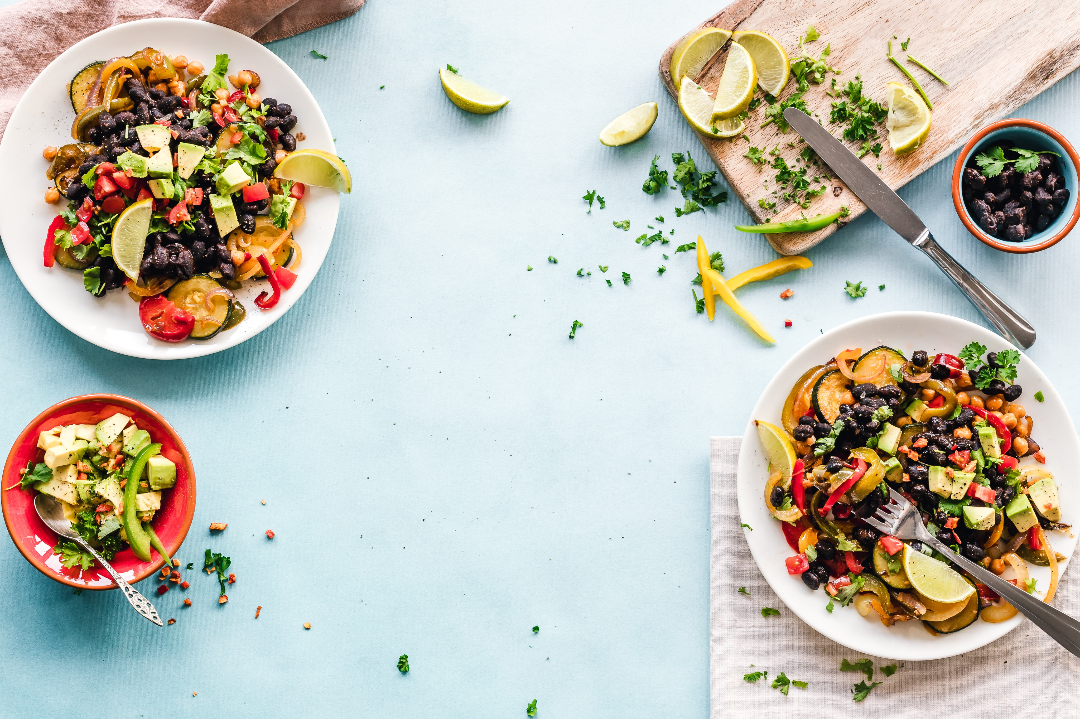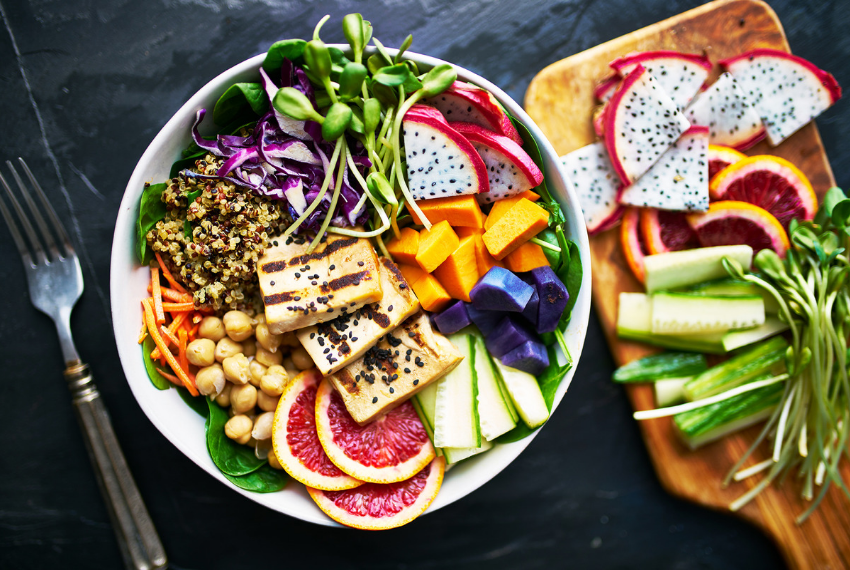
Could changing the way you fill your plate be a way to improve gut health?
Plant-based diets are becoming increasingly popular and promoted for a number of health benefits1 – there are even claims a plant-based diet would benefit the planet2. But what about its potential to improve gut health? As we learn more about the gut microbiome, and how important it is to our health and wellbeing, it seems plant-based foods are popular with our gut microbes too!
What is a plant-based diet?
While there may be slightly different approaches, a plant-based diet focuses on foods from plant sources and preferably as whole foods. It doesn’t necessarily mean avoiding animal products completely, like in a vegan diet, but simply lowering your intake to let the plant-based foods take the lead. Beyond just fruit and vegetables, this pattern of eating features legumes, wholegrains, nuts and seeds as major players in as many meals as possible.

Want to know the types of whole foods your gut microbiome needs to thrive? Discover Insight™
Is a plant-based diet good for gut health?
Most plant-based foods are packed with ‘gut healthy’ fibre and prebiotics, and there are lots of options for a variety of whole foods across your diet.
The best way to ‘eat for gut health’ is by consuming a wide variety of plant-based foods as part of any diet to provide your beneficial gut bacteria with the fuel they need to grow and produce health-promoting substances. These types of food include:
- whole grains
- legumes
- vegetables
- fruits
- nuts and seeds.
Numerous studies have shown that high-fibre diets containing a variety of plant-based foods contribute a broad range of prebiotics that nourish the beneficial bacteria in our gut3,4. In fact, research shows that diversity of plant-based foods in your diet is associated with a diverse and resilient gut microbiome5. This is because different species of gut bacteria use different components of our food as fuel. So, the more varieties of prebiotics you consume, the more you support the array of helpful bacteria living in your gut microbiome. These beneficial bacteria tend to increase when there’s plenty of plant-based foods to eat, and are excellent at breaking down fibre and producing health-promoting short chain fatty acids which are key substances for good gut health6.
How do you know what plant-based foods to add to your diet?
“The best tip to improve gut health is to encourage and nourish the growth of the beneficial bacteria that have taken up residence within you.”
– Nutritionist & Registered Nurse, Christine Stewart.
With a gut microbiome analysis, you can get a clear picture of which bacteria are living in your gut and what they might be doing, so that you can make food choices to improve the balance of your gut microbiome. With Microba Insight™, you receive an evidence-based list of foods that contain a variety of prebiotic substrates to promote the growth and activity of beneficial bacteria in your gut.

Your microbiome is unique to you. Find out what prebiotics and other fuel sources you may require.
While everyone’s gut microbiome is unique, a diverse and balanced gut microbiome is important to your health and wellbeing. Being rich in dietary fibre and prebiotics, a plant-based diet includes plenty of ‘gut-friendly’ foods that can promote and maintain a healthy balance of gut microbes. If you’re looking for inspiration for plant-based foods full of gut friendly prebiotics, Insight™ can provide recommendations based on your unique community of microorganisms.
This microbiome test is not intended to be used to diagnose or treat medical conditions. A full disclaimer is available here
References
Tuso PJ, et al..
Nutritional update for physicians: plant-based diets. .
Perm J, 2013; 61–66.. Doi: DOI: 10.7812/TPP/12-085
Willett, W., et al. .
Food in the Anthropocene: the EAT–Lancet Commission on healthy diets from sustainable food systems. .
The Lancet, 2019; 447-492. . Doi: DOI.
Williams, Barbara et al. .
Gut fermentation of dietary fibres: physico-chemistry of plant cell walls and implications for health..
International journal of molecular sciences. 2017;18(100):2203
Gibson, G. R. et al. Expert consensus document: The International Scientific Association for Probiotics and Prebiotics (ISAPP) consensus statement on the definition and scope of prebiotics..
Nat. Rev. Gastroenterol. .
Amp Hepatol. 14, 491 (2017).
Heiman, M.l, Greenway, F.L. .
A healthy gastrointestinal microbiome is dependent on dietary diversity. .
Molecular Metabolism. 2016; 317-320.
De Filippo, C., et al., .
Impact of diet in shaping gut microbiota revealed by a comparative study in children from Europe and rural Africa. .
Proceedings of the National Academy of Sciences, 2010. 107(33): p. 14691.


